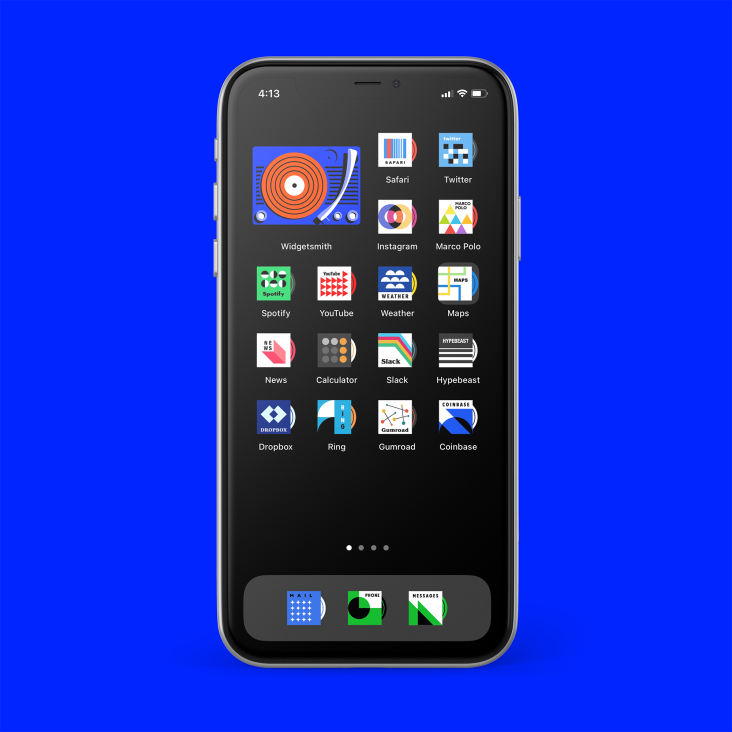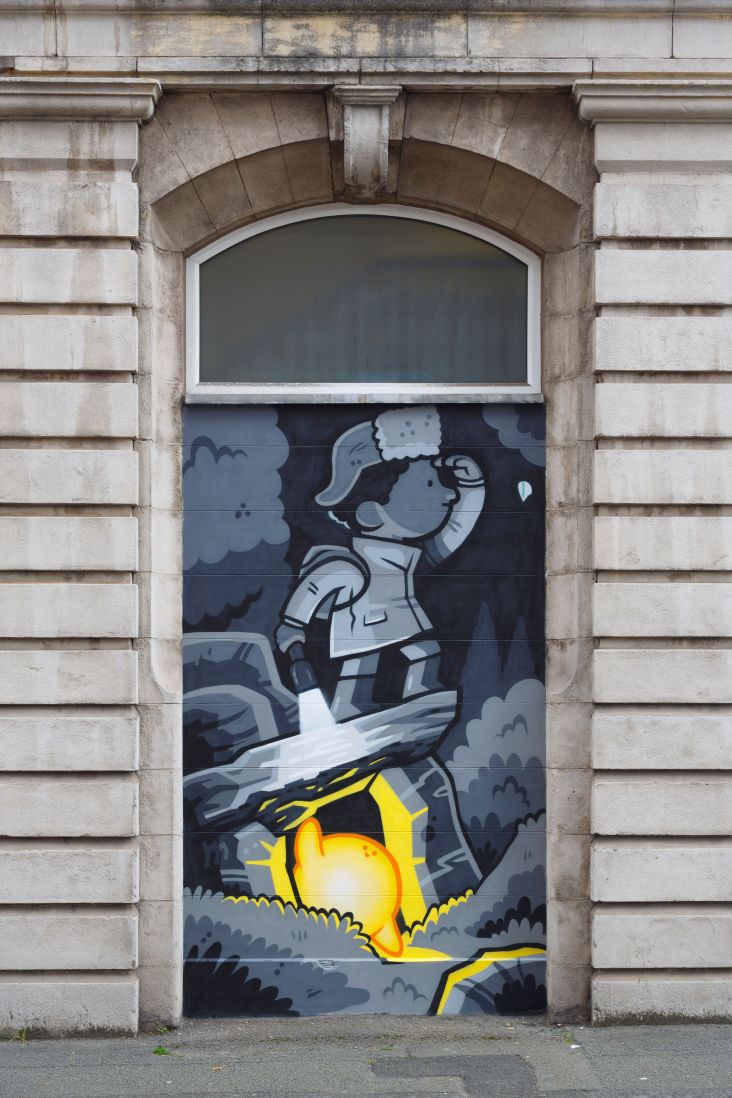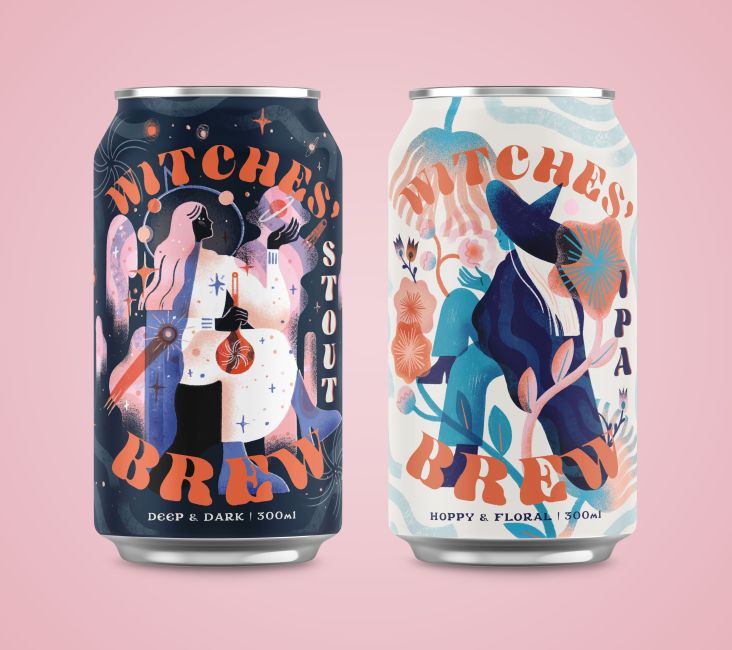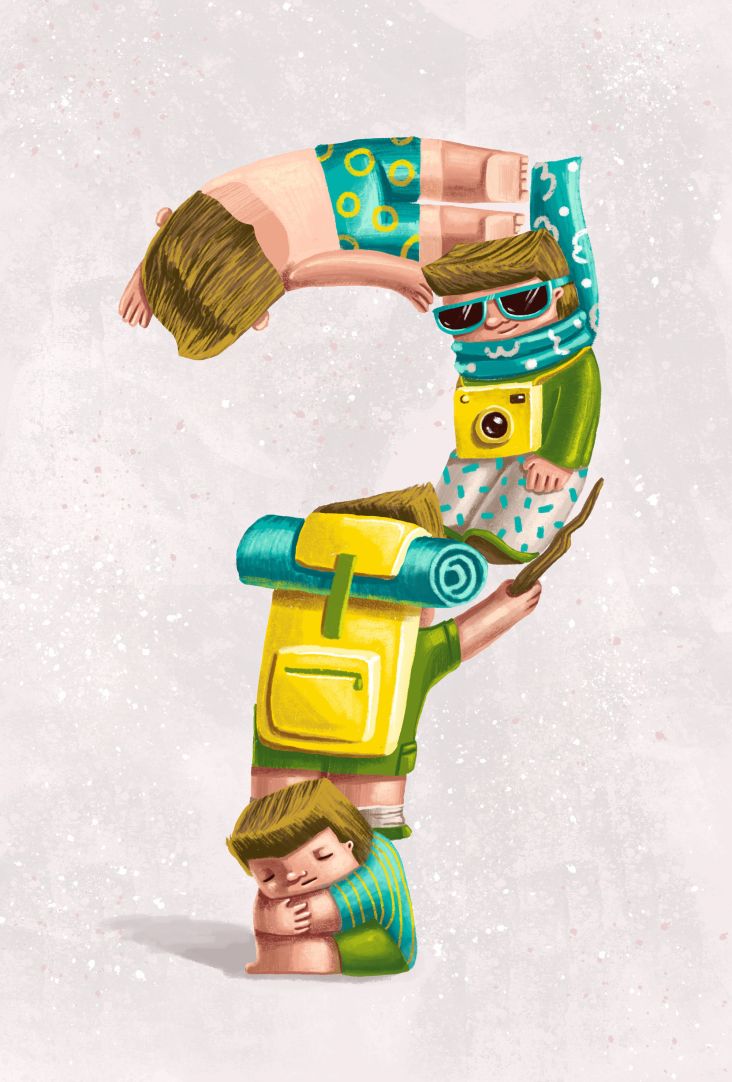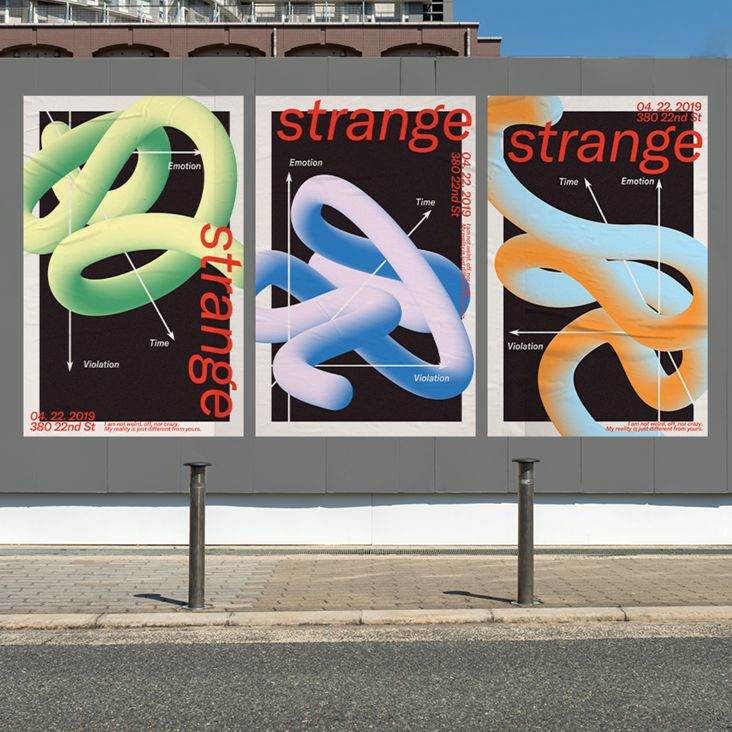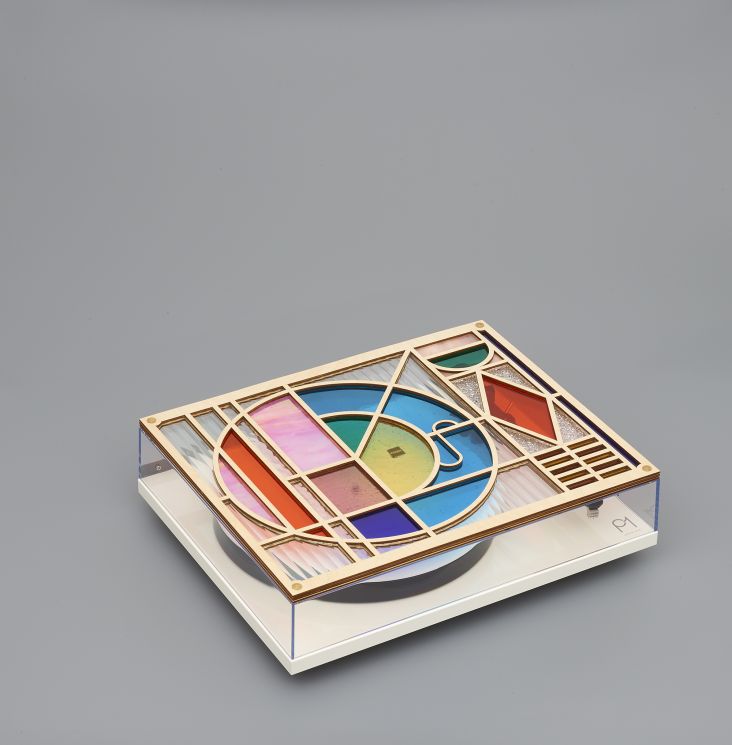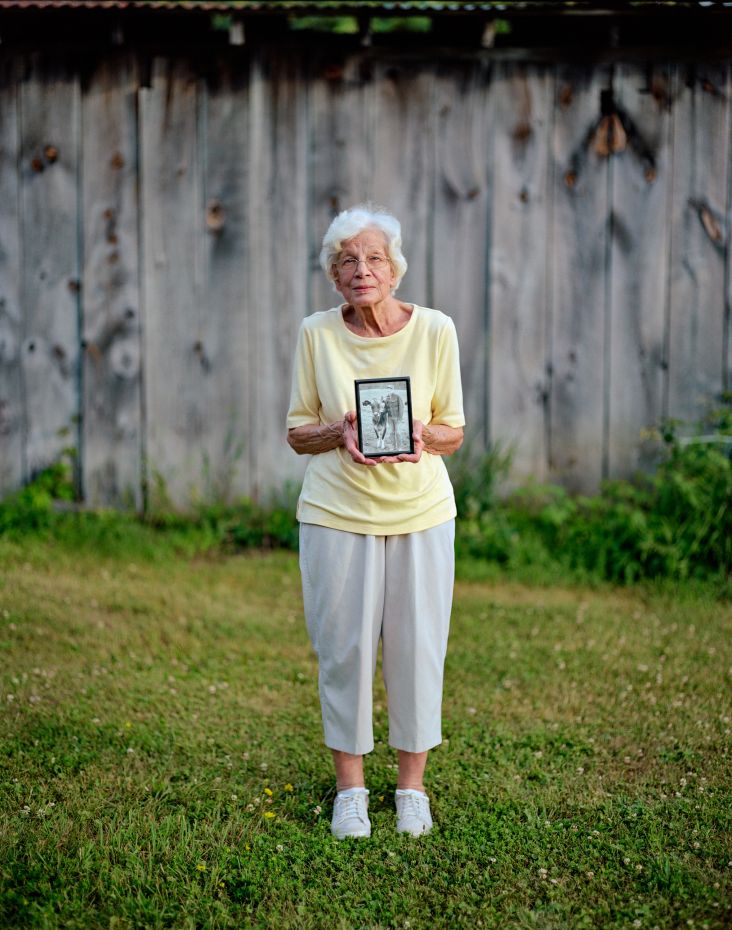Marloes De Vries on her love of freelancing and the surprising outcome of uncertainty
As a little girl, Marloes De Vries started making robots out of shoe boxes and toilet rolls and grabbed every piece of paper available in the house so she could draw. Today, she's an award-winning illustrator, author, and artist based in the Netherlands.
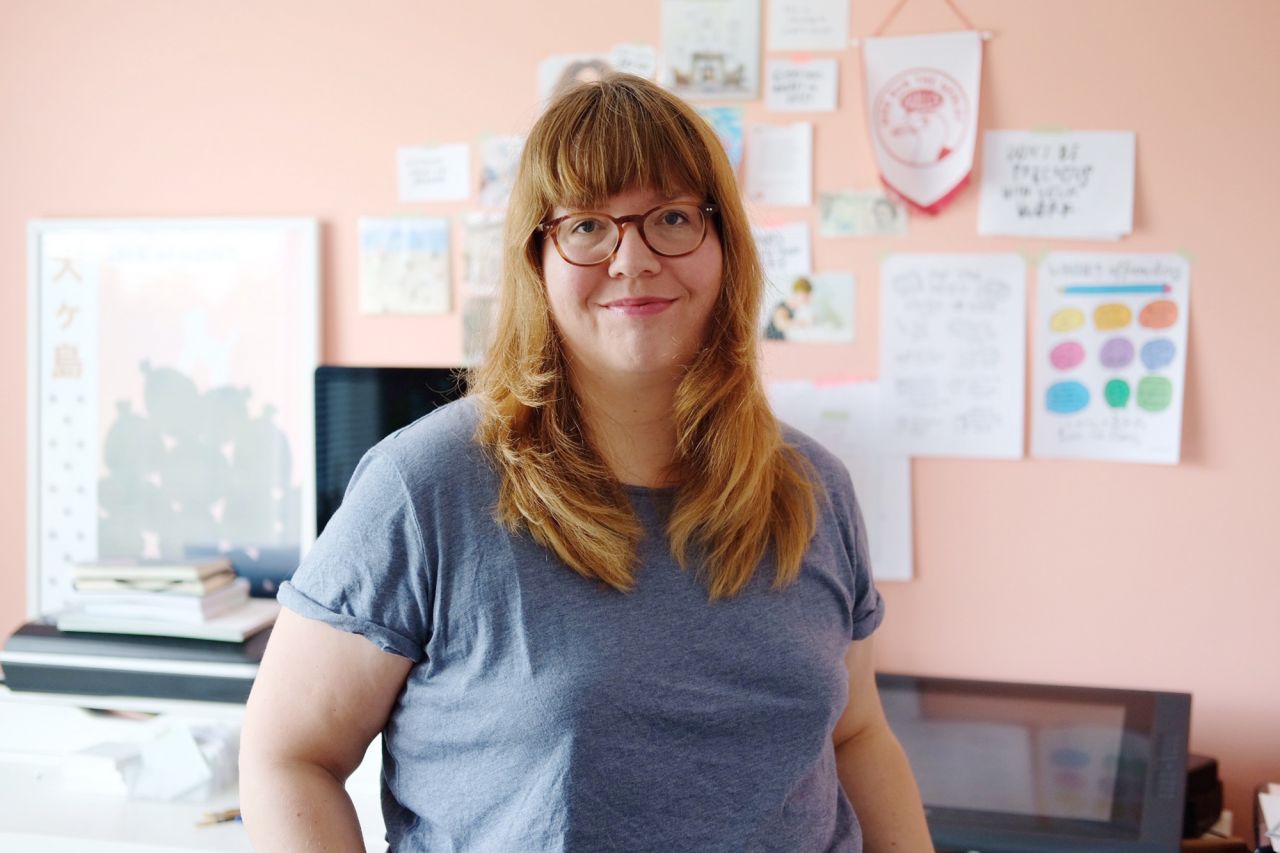
A graduate in visual communications, Marloes worked as a graphic designer, art director and photographer for several years, but decided in 2010 to take the leap and work as an illustrator, which was "the best decision" she ever made.
Now, she's a freelance illustrator and writer, working with publishers, magazines and brands on various commissions. She also illustrates (picture) books, designs book covers, creates editorial illustrations, and even makes comics and cartoons for Tina and Flair. When she isn't drawing, Marloes also writes for magazines such as Flow Magazine and Charlie. We chatted with Marloes to find out more about her career so far and how she's survived the events of 2020.
You've worked for yourself for over 12 years. Could you ever get a job again?
I thought about that too the other day actually! I worked as a graphic designer and art director at an agency before going freelance, right after graduating art school. I found that I didn't fully enjoy it but I wasn't quite sure what it was, so I worked at two agencies for about two years.
After that, I went freelance and I realised this was the right fit. I like doing my own planning, choosing which jobs to take on, what companies to work with. I also like to work with people but not being in the same room with them. All things hard to incorporate when you don't work freelance. I'll stick to freelancing until it doesn't feel right anymore but I suspect it won't change.
You've definitely experienced ups and downs, having survived for so long?
I feel like freelancing is a combination of knowing what you want to do, and rolling with the waves. It's being flexible with the right amount of stubbornness. You always have to keep your eyes open to what is happening in the creative world and anticipate, but at the same time knowing what you stand for and what you want to create. It's a thin line but for me, it's exciting to walk it.
What keeps me going is creating in the first place, but almost an equal part is the entrepreneurial bit, figuring out how to run a business. I also believe that being disciplined helps a great deal, and being headstrong is the trade that pulls me through every time. I've been told so many times in my life I couldn't do things. For me, that triggers something, an urge to prove people wrong.
Another thing that helps me to survive as a freelancer is optimism and being inventive. I can mope that things aren't going my way, or I can investigate what is possible and find a different route. I've been told I'm very lucky to be able to pay my bills with my freelance work for the past 12 years. I do feel lucky but I think that's just part of it. I've had some unlucky things on my way here so I could have just as easily failed.
What were you doing before?
In 2007 I graduated from AKI, academy of visual arts in Enschede (NL). I studied visual communication, focusing on concept design and graphic design, and I took film classes too. Only now I realise how fitting it is: my work is still focused on creating images which tell stories. I like to build bridges visually.
Fresh out of art school I got a job as a graphic designer at a big ad agency, which taught me a great deal about technical stuff but also working in big teams, and how to deal with clients. After a year I got a job as a lead designer/art director at a marketing agency and I learned it was quite hard as a young woman to be in a male-dominated world. It made me a lot stronger! After a year of working many late-night hours, I was heading towards a burnout but I also was a bit tired of the commercial part of marketing. I missed the humanity in it. I decided to quit and take a long sabbatical, but instead, I got asked by other agencies if I wanted to work freelance for them, so I did. But this time I got to decide who I worked for.
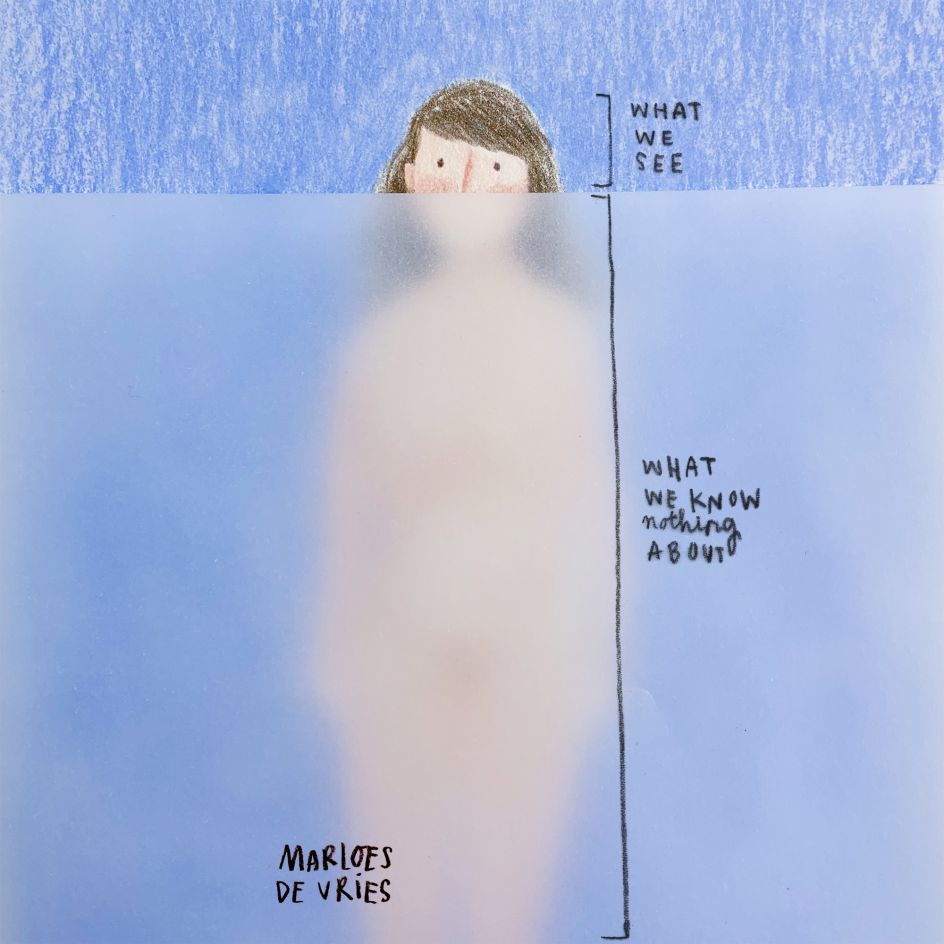
It sounds like you've listened to your gut a lot?
Hmm, on the one hand, I do but on the other, I want and need to listen even more to it. Generally speaking, I think I do pretty well listening to my gut. If I had listened to teachers, parents, adults when I was younger or listened to my rational brain, I wouldn't be doing this and I wouldn't be where I am today.
My parents were both quite scared when I decided to take the artistic route because where I'm from that's not really normal. It's very much considered "Dutch working-class" where I'm from. My mum now often says she's proud of me but can't help but inform me when there are job opportunities at the city hall she works at, hahaha! But listening to my gut: there are still things of which I think in hindsight, "I knew this didn't feel right". My brain and rational side can be very loud and overpowering, so I have to intentionally make space to listen to my instincts.
Did you always know you'd end up doing something creative?
Yes, no doubt. When I was about four years old I started exclaiming I wanted to be a painter or drawer. Throughout my younger years, this slightly shifted from comics artist to interior designer, but I never went astray from creativity. I didn't have to think for a second what I wanted to study after high school (or do you call this 'secondary school'?) and applied at the art school of my choice. It's not just a job to me, it's a vocation. What I create is in direct connection with who I am, and the other way around.
When my ex-boyfriend said seven years ago I had to choose between him and illustration, it was a really tough decision as we were together for almost 11 years. But in the end, I thought: "He's asking me to choose between him or myself". I chose myself, and I'm very happy I did.
Another thing that helps me to survive as a freelancer is optimism and being inventive. I can mope that things aren't going my way, or I can investigate what is possible and find a different route.
How have you found the pandemic? Has it changed anything you're doing?
It has made a bigger impact than I expected actually. In March, when news broke here we'd go in partial lockdown, immediately two jobs got cancelled and it stayed quiet until June. I always assumed I would panic and this would be my biggest fear but I felt relieved, surprisingly. I'd been overworking myself for the last five years (at least) and although I had tried to slow down before I never did. Now, I was forced to and this allowed me to take a look at what I really wanted, where I was at and if I was going into a direction I wanted to go. It wasn't, I realised.
Most freelancers didn't get financial support in the Netherlands (our government isn't really in favour of freelancers, to be honest) and neither did I, but I had some savings so I was going to be okay. Because I had more time on my hands I started painting again, making landscapes. It felt like coming home, it made so much sense.
I also invested time in taking online courses and reading books on business and mental wellbeing. I followed 28 courses and read 20 books, which gave me a lot of new insights.
In June, work started coming in again and because little money came in before I took on too much again. Like I didn't learn anything at all, so I have to have a word with myself. I still have a hard time saying "no" but I have shifted things. I'm not taking on every job right now, as I plan to take it a bit slower until 2021. I block time in my schedule for painting and writing because that's what I want to focus on more. I've learned I need to stop prioritising client work over my own work because the latter brings me the most joy.
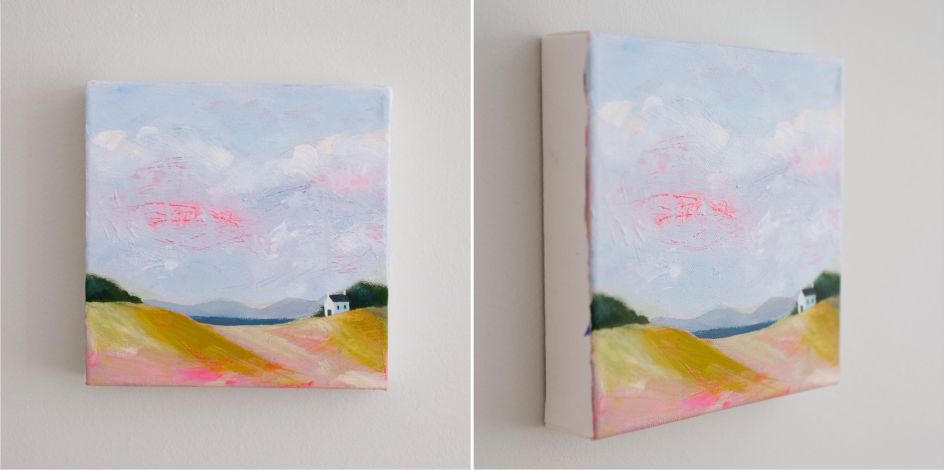
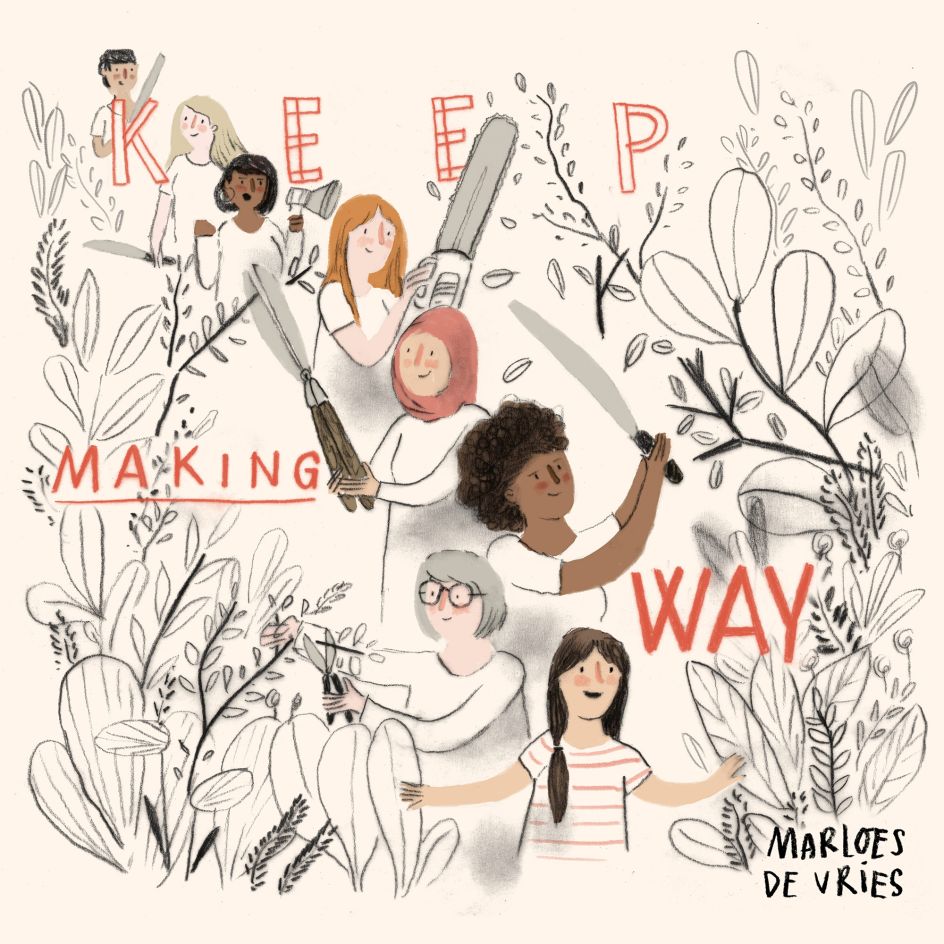
Let's look at your work. Can you describe it?
For me, it's about the narrative in the first place, I want to tell stories with my drawings. I try to use as few lines as possible because I want to get a story across clearly, and I don't want to clutter it. It's soft-coloured, gentle and accessible I think, with humour too.
My influences from childhood were Fiep Westendorp, an illustrator that still inspires me today, as well as Suske & Wiske (a famous Belgian comic series) and Quentin Blake. I feel inspired by artists like Maira Kalman, Fairfield Porter, David Hockney, Posy Simmonds, Sempé, Gemma Correll and Oliver Jeffers, but also by comedians/writers like Miranda Hart and Sarah Millican. I like it when people have a good sense of humour and have found a way to communicate that to others.
What has really helped you to get noticed, aside from being so talented?
I think talent is that little spark that gets one motivated to pursue a certain path, and the rest is just to keep working at it and don't give up. I'm a firm believer that if you're persistent, even when you're knocked down, you can achieve more than you think.
I would say consistency also helps a lot. I've been posting on social media, especially Instagram, for the past 10 years. It's hard to not notice someone who's showing up every day. It proves you mean business, and that it isn't a whim.
I also participated in exhibitions and collectives, to broaden the audience that sees my work. If you find like-minded people and you surround yourself with them, it helps because your audiences cross paths that way. I seek out people I genuinely feel a connection with, and not because I think they can be "useful" to me. I think it's important to be genuine and reliable to build a long-lasting career. People will either sense or experience insincerity, and that's not a good foundation to build on.
What I believe helps, in the long run, is being true to yourself and what you want to say and make. Imitating other styles and voices might help in the short term to get jobs (and for some even results in a successful career) but you're relying on others to pave the way for you. If you follow your own voice/style you are paving your own way and can rely on yourself. It gives you more power over your career, but I also believe clients and people will remember you better because they don't confuse you with someone else.
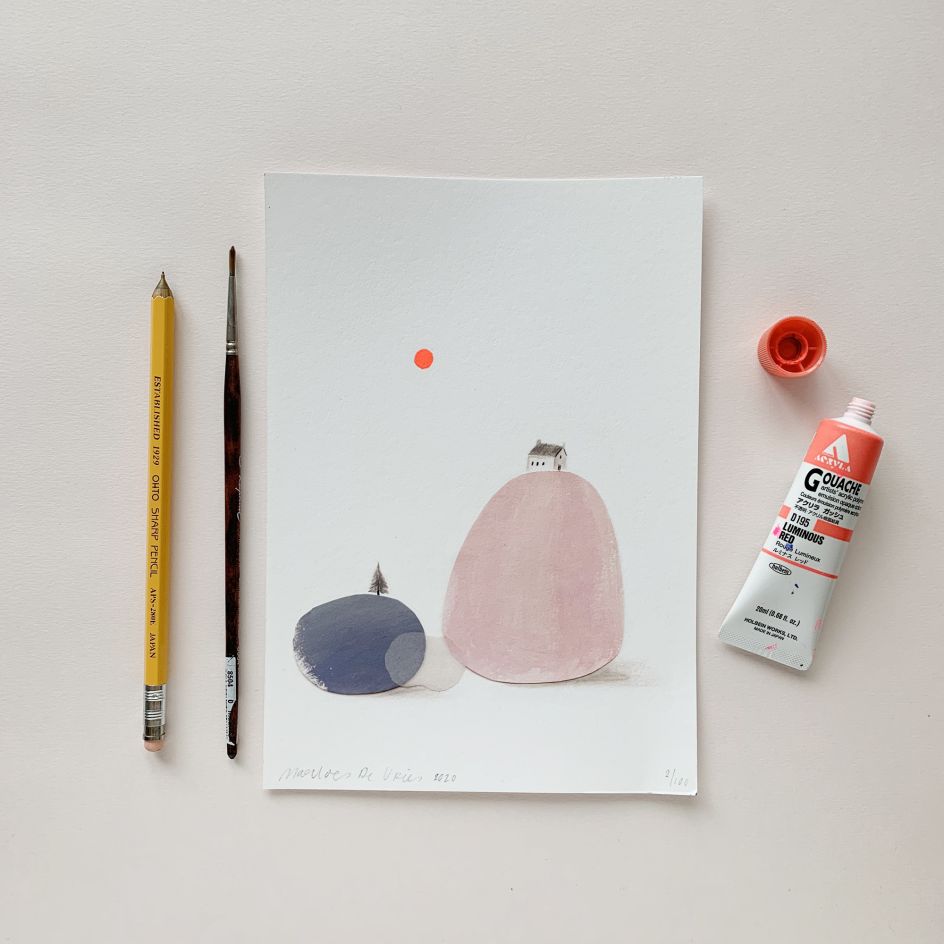
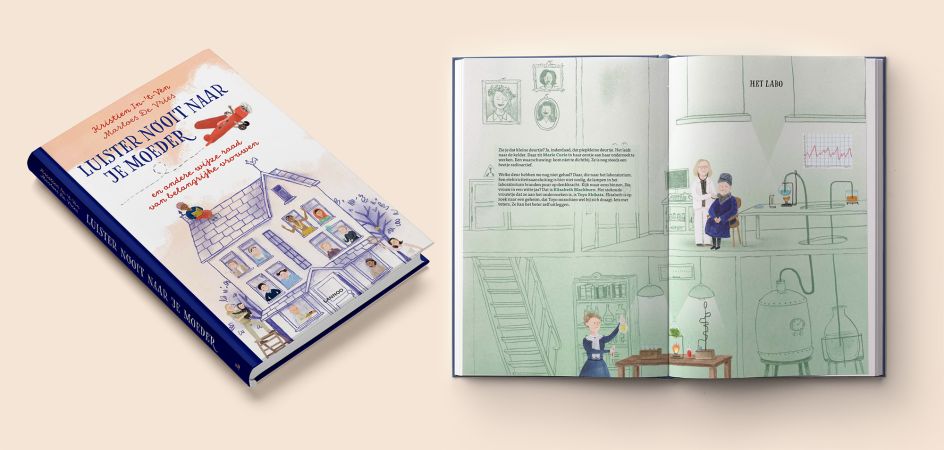
Do you ever worry the work will dry up?
I have worried about that for the first 10 years of my freelance career. As a result, I always took on more jobs than I could, just in case I would have a dry spell after. But for the past two years I realised that if I want to avoid overworking myself, I have to decline jobs sometimes.
I still worry it will dry up but I also know there are plenty of options left for me to make a living. I've had many jobs in the past from being a lifeguard to digging graves, so I know money can be made. In the past few months, I realised that I don't do this work necessarily because I want to work for clients. I love working for clients but I do this because I want to tell stories with images and words. So actually, work will never dry up. I will always have my own stories to tell. Write and illustrate those picture books that have been gathering dust in my brain, hopefully, one day I will have an exhibition with my landscape paintings, I have several ideas for non-fiction books... There's so much left to do!
Tell us something surprising about yourself
Oof, I have to think... I already said I was a gravedigger, I did that for two summers. People are often surprised to hear that I practised judo at a high level. My trainer had big plans for me. But I broke his heart when I told him I was quitting to study at art school. I'm still happy with my choice because professional sportsmen and women tend to have short-lived careers, and doing what I do today has always been my biggest love.
Finally, what advice would you give to others looking to go freelance?
Talk to freelancers in your field before taking the plunge, so you're prepared for what's coming next. Over the years I saw people pursuing freelance illustration and quitting because they didn't realise that going solo means you're running a business first, and an illustrator second. It means that most of your day you're doing admin, talking to clients, reading contracts, negotiating, marketing, answering emails, etc.
Of course, you're also drawing and illustrating but it's a lot less than most people expect. Being prepared for that helps a great deal in calculating your prices and making work schedules.




 by Tüpokompanii](https://www.creativeboom.com/upload/articles/58/58684538770fb5b428dc1882f7a732f153500153_732.jpg)


 using <a href="https://www.ohnotype.co/fonts/obviously" target="_blank">Obviously</a> by Oh No Type Co., Art Director, Brand & Creative—Spotify](https://www.creativeboom.com/upload/articles/6e/6ed31eddc26fa563f213fc76d6993dab9231ffe4_732.jpg)








